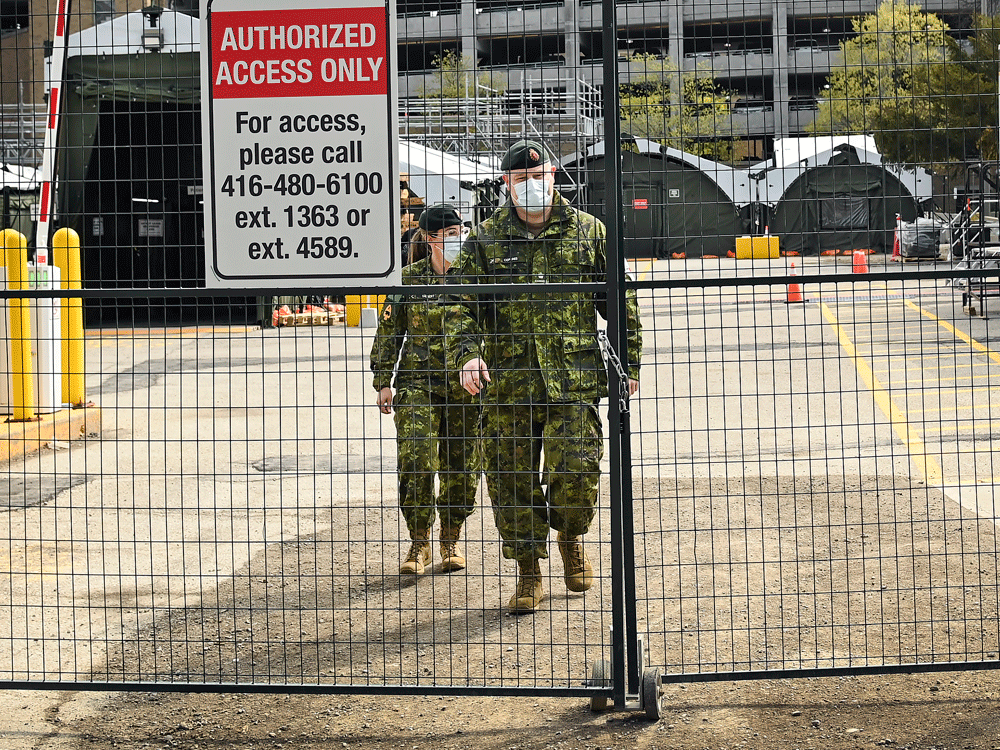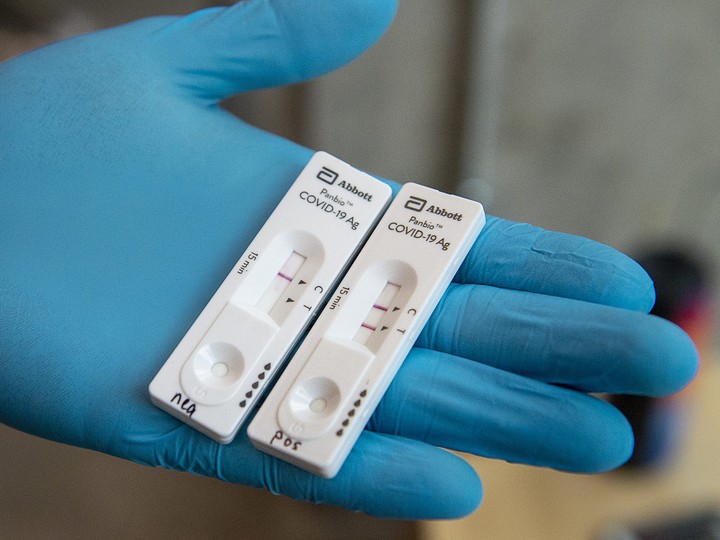the spread of omnicron comes at a most inconvenient time. with many people having already made plans for holiday gatherings and travel to see loved ones, the experts are saying that rapid tests is one way to help slow transmission of this new and highly transmissible variant.“we should flood canada with rapid tests,”
dr. isaac bogoch, an infectious disease specialist at university health network told cbc news. “there should be no rapid test sitting on a shelf, collecting dust in a warehouse. they should be in the hands of canadians.”
two ways to test for covid
rapid tests come on the heels of the more familiar
polymerase chain reaction (pcr) test, where a healthcare provider swabs a patient and then gives that sample to a lab technician, who isolates the genetic material and tests it in a thermal cycler to detect whether or not the sars-cov-2 virus is present. results can take days.the rapid antigen test, which is most accurate when a person has covid symptoms — less so if they are asymptomatic or in the early stages of infection — deliver results in about 15 to 20 minutes, are easy to use, and are supposed to be east to access — although
people are lining up for hours to snag the free tests provided by the ontario government, for example.but as reassuring as it may sound to be able to confirm you are covid-free before meeting up with others, rapid tests are not the be-all-end-all solution, says devon greyson, an assistant professor of public health at the university of british columbia. rather, we should think of them as just “another layer of protection” in the fight against the virus.“when we talk about safety in medicine or public health, we often talk about this swiss cheese model,” greyson says. “nothing is 100 per cent effective, everything has some holes. so you want to have multiple slices of swiss cheese up against each other to try to reduce the risk that your holes will line up.”canada’s chief public health officer
dr. theresa tam said something similar at a news conference earlier this month: “we need to use everything we have available to add those layers of protection, of which a rapid test is one.”so what should you know about rapid tests?
when should i take a rapid test?
rapid tests work best when a person has symptoms of the virus, dr. fatima kakkar, a pediatric infectious disease specialist and doctor at the centre hospitalier universitaire sainte-justine in montreal,
told cbc. if you don’t have symptoms or in the early stages of infection the positivity rate drops to between 35 to 50 per cent, she says, since there may not be a lot of the viral protein in your system for the test to detect.still, taking a rapid test before you see other people can add an extra layer of security. according to
dr. ashley lipps, an infectious diseases physician at the ohio state university wexner medical center, a negative result “strongly suggests you are negative at that particular time.”
how do rapid tests work?
most come in a small kit with a nasal swab, solution, test strip and test tube. generally, you’d add the solution to the test tube, then swab your nostril, put the swab into the tube, stir it, and then drop several drops onto the test strip.many tests are similar to pregnancy tests in that you’re looking for visual signs in two places: a control area, and the test area. when the control line — identified by the letter ‘c’ — becomes visible, that indicates that the test is working. if test line — identified by the letter ‘t’ — becomes visible, that means the test is positive for covid.
 4 minute read
4 minute read










